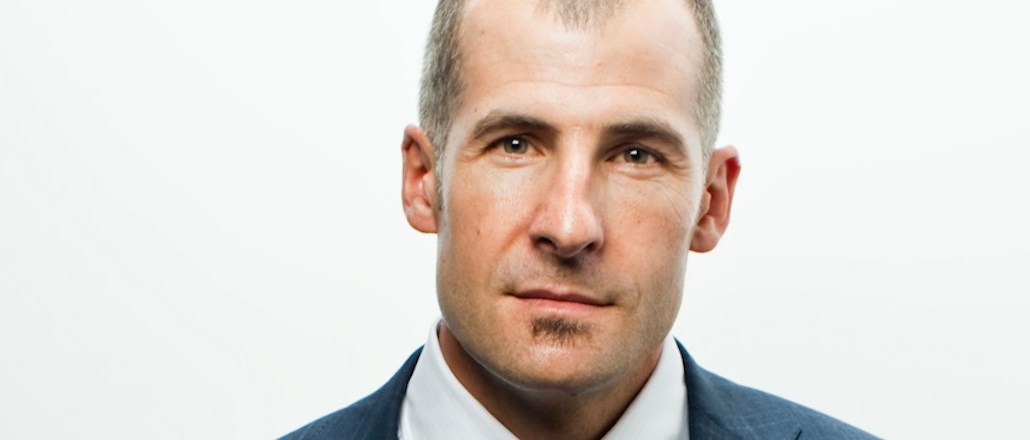Secure your place at the Digiday Media Buying Summit in Nashville, March 2-4
‘Diamonds come from diversity’: How Translation president Pat Lafferty made it in advertising

Pat Lafferty spent seven years in the army before starting his advertising career at Leo Burnett in 1995. Since then, the 50-year-old has had stints at agencies including McCann Worldgroup, McCann Erickson and BBH as well as brands including McDonald’s, Kellogg’s and the U.S. Army. He became president of Translation in October 2016. He tells us how he got into the business and what were some of the biggest lessons he learned along the way.
I grew up in northern New York. My father was a state trooper, and my mom was a nurse by training but a stay-at-home mom. I went to St. Bonaventure University in western New York for my undergrad and studied communications. I was there on the ROTC army scholarship, which I applied for and was lucky enough to get.
It’s pretty competitive, and you have to be very well rounded, including in academics, athletics, leadership and participation in school activities, so I worked very hard for it. But in all honesty, I thought I was going to hate the ROTC part of it. I had all these stereotypes in my head that everyone has about the military, about how it’s restrictive and people are always telling you what to do. But it didn’t take me long once I was in the program to realize that most of my preconceptions were wrong.
Right after college, I was commissioned as a second lieutenant in the army. My first assignment was in Germany for about three years. I was a platoon leader, a general’s aide and then was also deployed to the desert during the Iraq-Kuwait War. Then I was reassigned to the U.S. and deployed two more times, first to Panama for a few months and then to Haiti for a few months.
I learned a lot from my time in the army. It teaches you to work hard and fight through, no matter what. It teaches you how to push yourself beyond your limits. I spent my time being thrown into all sorts of situations at a very young age. That taught me leadership, teamwork and tenacity, and was absolutely fundamental to making me who I am today.
When I got out of the army after seven years in 1995, I went through this recruiting from Cameron-Brooks whose entire business model is to help junior officers get into business. I was very lucky in that Leo Burnett was using them as a source for its recruits, and that’s how I ended up in advertising.
If I boiled down my army experience, it really is understanding people, what makes them tick and how to motivate or influence them — which frankly is the heart of marketing. It may sound weird, but it was actually incredible training for the field of advertising. It was an amazing bootcamp, if you will, for this business.
One of the highest points for me was pitching and winning the army business during my time at Leo Burnett. It was life coming full circle. Obviously, I understood the business, but the most amazing thing about it was that it was a fully-integrated piece of business. We handled everything from PR and CRM to digital and events. To really see the all these pieces of working together and the snowball effect of that was remarkable. It was almost like a freight train that you couldn’t stop, because of the impact of it all working in synergy.
I do remember vividly when we lost the United business while I was at Leo Burnett. It was one of those times when there really was no good reason for it. It was hard for me to grasp because I was a bit naïve, and in the world that I came from, if you worked hard and did the right thing, that was rewarded. It’s also tough to lose pitches that you’ve invested a lot in and poured your heart and soul into — they’re like your baby. When I was at McCann, we pitched Exxon Mobil for a year. And in the end of all that hard work, blood, sweat and tears, we didn’t end up winning the business. That was definitely a low point.
To succeed in advertising, you have got to really love working with a wide variety of people. It makes things more complex and messy, but that’s what makes the industry such a great place to work in. Great things and great work happen when you get really different people together and harness diverse talent. That’s where the diamonds come from, and that is the heart of success in this business.
More in Marketing

Thrive Market’s Amina Pasha believes brands that focus on trust will win in an AI-first world
Amina Pasha, CMO at Thrive Market, believes building trust can help brands differentiate themselves.

Despite flight to fame, celeb talent isn’t as sure a bet as CMOs think
Brands are leaning more heavily on celebrity talent in advertising. Marketers see guaranteed wins in working with big names, but there are hidden risks.

With AI backlash building, marketers reconsider their approach
With AI hype giving way to skepticism, advertisers are reassessing how the technology fits into their workflows and brand positioning.








